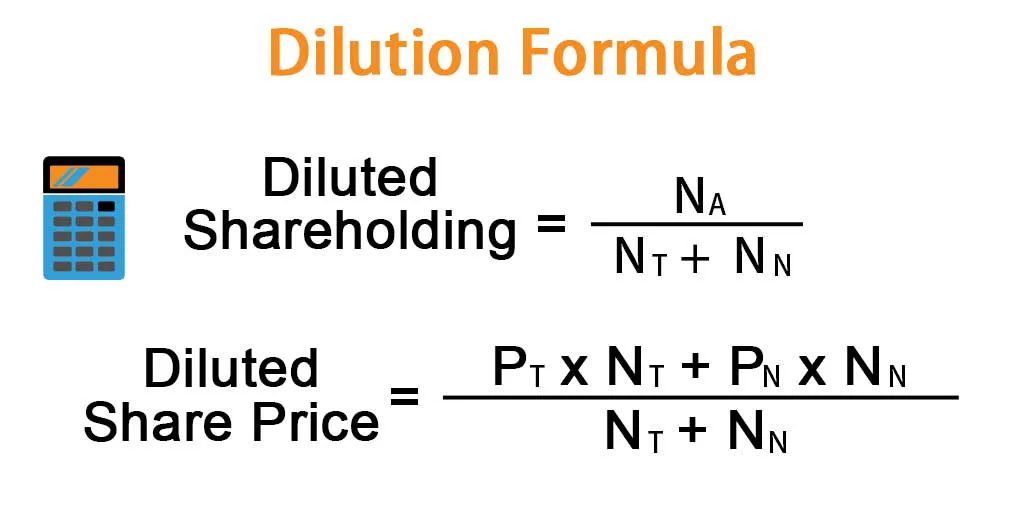What is Dilution?
Dilution is the process of lowering the concentration of a solute in a solution by adding more solvent, such as water. This means increasing the amount of solvent without altering the amount of solute.
A common method to achieve a solution of a specific concentration is by taking a higher concentration solution and adding water until the desired concentration is reached. This procedure is known as dilution. It can also be done by mixing a higher-concentration solution with a lower-concentration solution. In laboratories, stock solutions are often stored in highly concentrated forms and must be accurately diluted to a known, lower concentration before use.
Dilution Formula
Dilution involves adding a solvent to reduce the solute concentration, while concentration involves removing solvent to increase the solute concentration. In both cases, the amount of solute remains constant, allowing us to calculate the new solution volume required for a desired solute concentration using molarity:
Since the quantity of solute does not change, we can use the dilution equation:
Here, and are the initial molarity and volume, and and are the final molarity and volume. The volumes must have the same units. This equation provides the initial and final conditions but not the magnitude of the change. To find the amount of change, subtraction is used.
Methods of Dilution
- Simple Dilution Method
A simple dilution involves blending a unit volume of a solute with an adequate volume of a solvent to achieve the desired concentration. The dilution factor is the total number of unit volumes in which the material is dissolved. For example, a 1:5 dilution involves mixing 1 unit volume of solute with 4 unit volumes of solvent, resulting in a dilution factor of 5. This means the solute is now 1/5 as concentrated as before.
- Serial Dilution Method
Serial dilution is the process of diluting a stock solution multiple times in succession, usually keeping the dilution factor constant. This results in an exponential decrease in concentration and is used to create highly diluted solutions or to study concentration curves in fields like biochemistry, pharmacology, microbiology, and physics. The dilution factor is calculated as the initial volume divided by the final volume:
Importance of Dilution
Dilution is essential for adjusting the concentration of an analyte to fall within acceptable testing limits and to minimize interferences from other compounds in a sample. In microbiology, serial dilutions reduce bacterial concentrations to manageable levels for testing or counting on agar plates. This method is advantageous because it uses readily available materials and allows for adjustments as experiments progress. It is commonly used in serological processes to determine the smallest reactive concentration of serum.
Frequently Asked Questions on Dilution
- What is the purpose of dilution?
- Dilution lowers the concentration of an analyte to fall within range and eliminates interferences from other substances that may alter the analysis.
- What is the dilution of acid?
- Dilution of an acid or base involves mixing it with water to decrease the concentration of ions (H₃O⁺/OH⁻) per unit volume.
- What are concentration and dilution?
- Dilution is adding solvent to decrease solute concentration, while concentration is removing solvent to increase solute concentration.
- How to perform an emulsion dilution test?
- This test is based on diluting an emulsion with its continuous phase and observing separation. Water conducts electricity, while oils do not.
- Can emulsions be diluted?
- Emulsions can be diluted with the same type of material as the continuous phase.




